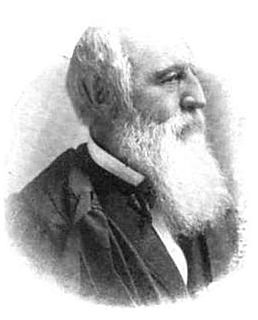Top 705 Biblical Stewardship Quotes & Sayings
Explore popular Biblical Stewardship quotes.
Last updated on April 14, 2025.
The wearing of fabric head coverings in worship was universally the practice of Christian women until the twentieth century. What happened? Did we suddenly find some biblical truth to which the saints for thousands of years were blind? Or were our biblical views of women gradually eroded by the modern feminist movement that has infiltrated the Church
Awarded the Nobel Peace Prize in 1986, Elie Wiesel is also the author of more than 40 books. As relevant as anything to today's discussion are the insights into the Biblical texts that are contained in his lectures and books. They include Messengers of God [1976], Five Biblical Portraits [1978] and his just-published Wise Men and Their Tales - Portraits of Biblical, Talmudic and Hasidic Masters.
There is no such thing as biblical dating. If you're dating, I don't care who you're dating, you're out of God's will. If you're a young man and you're dating, you're out of God's will. Period. You can come talk to me about it later, you can be mad if you want. But that's just the truth. There's no such thing as recreational dating. There is biblical courtship, there is no recreational dating.
Theology is a non-subject. I'm not saying that professors of theology are non-professors. They do interesting things, like study biblical history, biblical literature. But theology, the study of gods, the study of what gods do, presupposes that gods exist. The only kind of theology that I take account of are those theological arguments that actually argue for the existence of God.
The biblical writers didn't need to say everything; they could assume some things. They didn't anticipate a day when even Jews and Christians would fall under influences of non-biblical religions, philosophies, and worldviews, to the extent that is now the case in our pluralistic culture and society.
I think we are affected so much by mythical stories and biblical stories, our society being based on the Bible - at least the old society is based on biblical terms and laws - that there's more of it in art than people realize. Sometimes it comes to the surface, but sometimes it's below the surface, but certainly, it does influence some of my movies.
Congress actually authorized the printing and payment for a Bible. That illustrates the high regard that the Bible was held in early American society. We see biblical ideas woven into the founding documents of our country like the Declaration of Independence and the Constitution. The Declaration of Independence explicity states "that all men are created equal, that they are endowed by their Creator with certain unalienable Rights..." This is a biblical idea stemming from the dignity of all people - Psalm 139:14 - we are fearfully and wonderfully made.
Papal infallibility and biblical inerrancy are the two ecclesiastical versions of this human idolatry. Both papal infallibility and biblical inerrancy require widespread and unchallenged ignorance to sustain their claims to power. Both are doomed as viable alternatives for the long- range future of anyone.
Biblical archaeology was developed early in this century in an effort to substantiate the authenticity of the Biblical account. It's by now generally recognized in Biblical scholarship that it has done the opposite. The Bible is not a historical text, and has only vague resemblances to what took place, as far as can be reconstructed. For example, whether Israel ever existed is not clear; if so, it was probably a small kingdom somewhere in the hills, apparently virtually unknown to the Egyptians.
When biblical material touches on the natural world, we can legitimately use the tools of science. Sometimes that shows us - no shock here - that biblical writers didn't know as much as we now know about the natural world - but God knew that when he picked them, so that alone tells us that "doing science" that would satisfy a 21st century - and beyond - audience wasn't what God was interested in with respect to the enterprise of producing Scripture for posterity.
In the loss of skill, we lose stewardship; in losing stewardship we lose fellowship; we become outcasts from the great neighborhood of Creation. It is possible - as our experience in this good land shows - to exile ourselves from Creation, and to ally ourselves with the principle of destruction - which is, ultimately, the principle of nonentity. It is to be willing in general for being to not-be. And once we have allied ourselves with that principle, we are foolish to think that we can control the results. (pg. 303, The Gift of Good Land)
I'd have to think about it, but I was listening to this Johnny Cash song today that Tom Waits wrote for him - I think that's the story. For some reason it's a thing that sticks in my brain. He's describing this scene where he sees all these almost biblical images happening kind of in this burrow where this biblical train runs through this yard.
My claim is simply that the literary approach is one necessary way to read and interpret the Bible, an approach that has been unjustifiably neglected. Despite that neglect, the literary approach builds at every turn on what biblical scholars have done to recover the original, intended meaning of the biblical text.
Now we see how the astronomical evidence supports the biblical view of the origin of the world. The details differ, but the essential elements in the astronomical and biblical accounts of Genesis are the same: the chain of events leading to man commenced suddenly and sharply at a definite moment in time, in a flash of light and energy.
The Bible is interpreted by the Talmud. Except, in Rabbinic tradition, a Talmudic law has the weight of the Biblical law. Sometimes we say in a prayer, "Blessed are Thou, O God, who has ordered us and commended us," to do something. But you don't find that "something" in the Bible; you find it in the Talmud. So Talmudic law becomes as important as Biblical law.
Mysticism has often been misunderstood as the attempt to escape this simple, phenomenal world to a more pure existence in heaven beyond. This is not mysticism, but Gnosticism. Biblical mysticism is the attempt to exit 'this world' to an alternative reality that pervades the old order. Its goal is to jettison the mind-set that says 'greed is good,' selfishness is normal,' and 'killing is necessary.' Mysticism in biblical terms is not escapism, as so many have caricatured it, but a fight for ethics and social change.
The biblical lifestyle is always a witness of resistance to the status quo in politics, economics, and all society. It is a witness of resurrection from death. Paradoxically, those who embark on the biblical witness constantly risk death - through execution, exile, imprisonment, persecution, defamation, or harassment - at the behest of the rulers of this age. Yet those who do not resist the rulers of the present darkness are consigned to a moral death, the death of their humanness. That, of all the ways of dying, is the most ignominious.
Archaeology in general is the recovery and study of the material culture of past civilizations. Biblical archaeology is as an application of the science of archaeology to the field of biblical studies. Through the comparison and integration of Scripture with the evidence of history and culture derived from archaeology, new insights into the biblical context of people and events, and sometimes the interpretation of the text itself, are possible. In this way archaeology serves as a necessary tool for biblical exegesis and for apologetic concerns.
"Biblical theology" refers to something more precise than theology that is faithful to the Bible. It might be helpful to draw a contrast: at the risk of oversimplification, systematic theology tends to organize theology topically and with an eye cast on its contemporary relevance, while biblical theology tends to organize the same biblical material so that it is easier to see the distinctive contribution of each biblical book and human author, and to trace the trajectories of themes across the Bible so we see how the books of the Bible hold together.
Only the most unapologetic biblical fundamentalists, for instance, take every biblical injunction literally. If we all took all scripture at the same level of authority, then we would be more open to slavery, to the subjugation of women, to wider use of stoning. Jesus himself spoke out frequently against divorce in the strongest of terms.
Well, it [evolution] is a theory, it is a scientific theory only, and it has in recent years been challenged in the world of science and is not yet believed in the scientific community to be as infallible as it once was believed. But if it was going to be taught in the schools, then I think that also the biblical theory of creation, which is not a theory but the biblical story of creation, should also be taught.
I do believe in what I call the stewardship of influence as well as the stewardship of affluence. And that is you use whatever God gives you not for your own benefit, but use it to help people who have no benefit. And when you use whatever God gives you, he gives you more of it. When you use it well, he gives you more of it.
There's nothing easy or simple or even entertaining (in our contemporary American sense of that word) in disciplining our minds to "see" reality through biblical lenses; it takes effort and time. But Christians who don't take that effort and time will inevitably succumb to some of the anti-biblical and anti-Christian messages that bombard us every day through advertising, entertainment, etc.
Stewardship isn't a subcategory of the Christian life. Stewardship is the Christian life. After all, what is stewardship except that God has entrusted to us life, time, talents, money, possessions, family, and his grace? In each case, he evaluates how we regard what he has entrusted to us and what we do with it.
Why are you uncomfortable with the supernaturalist worldview of the biblical writers? Evangelicals don't want to just say, "Well, the inspired writers were wrong about some of their beliefs about the spiritual world and its inhabitants." That really doesn't work in a confessional situation! So instead we come up with excuses and interpretations that allow us to remake the biblical writers in our own post-Enlightenment image. I understand that impulse, but it's not honest.

















































